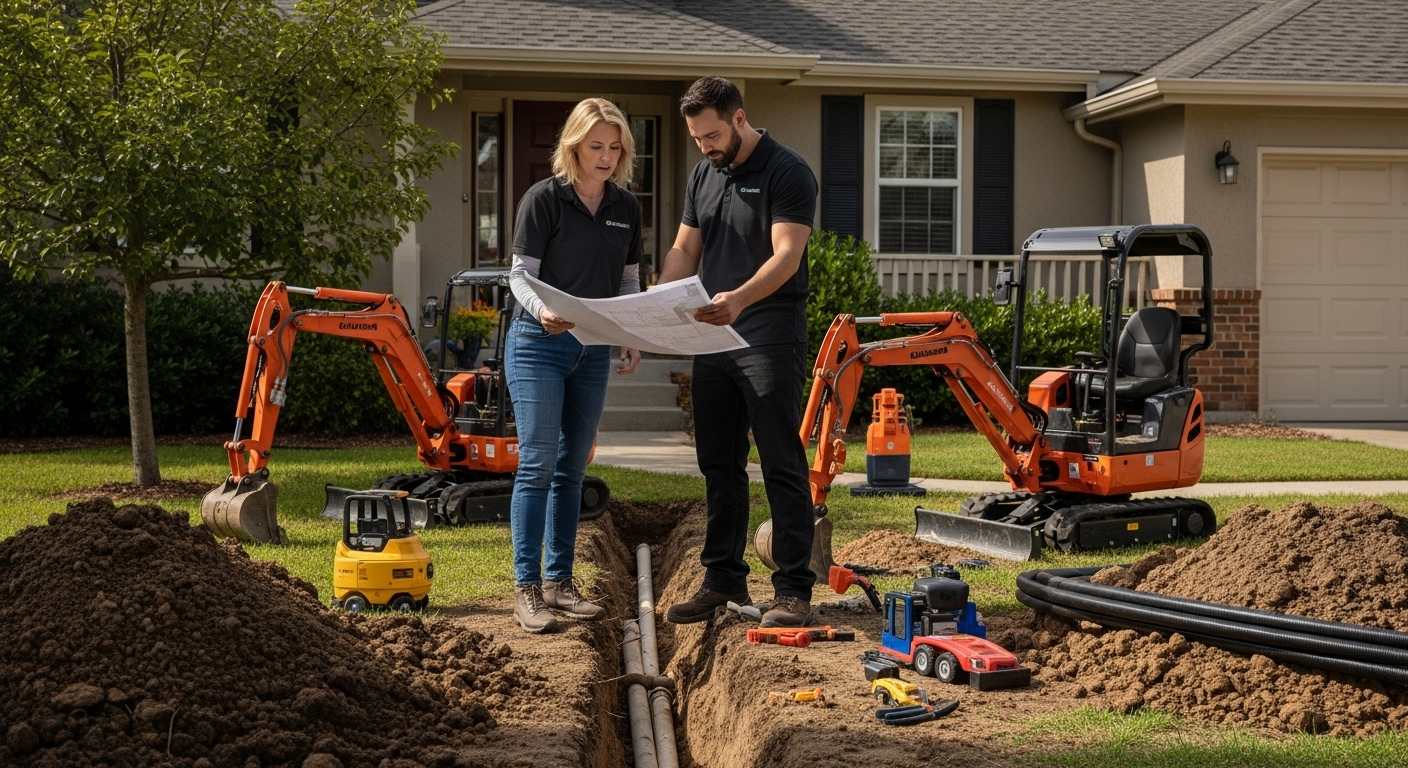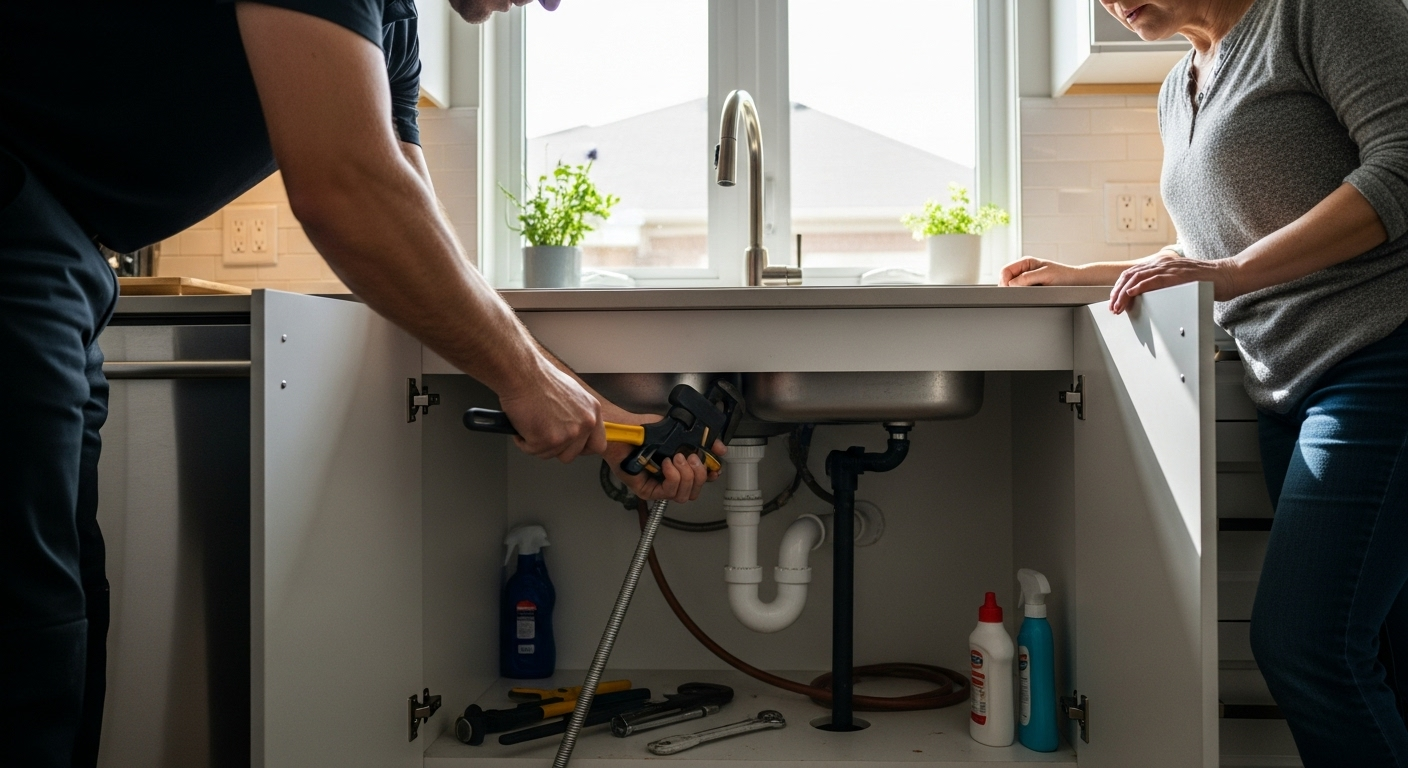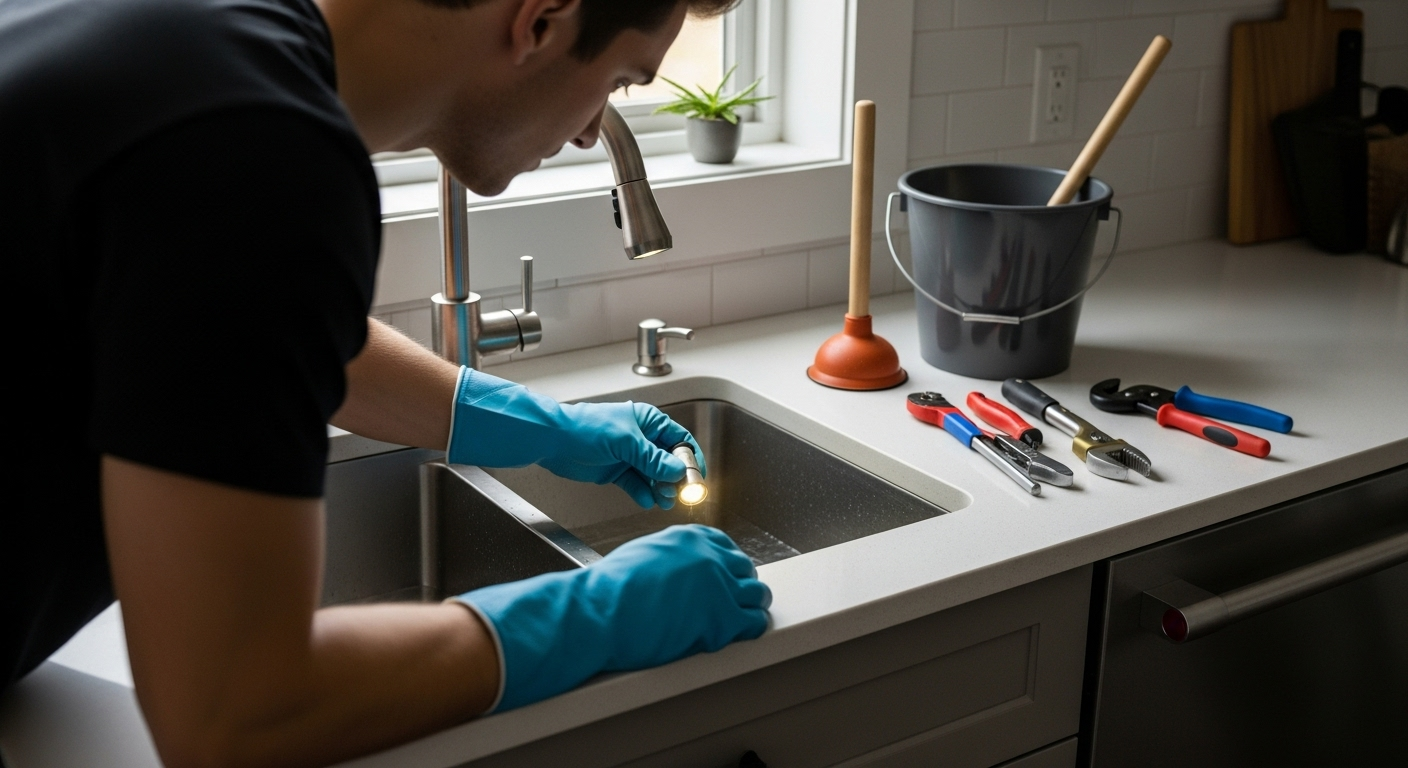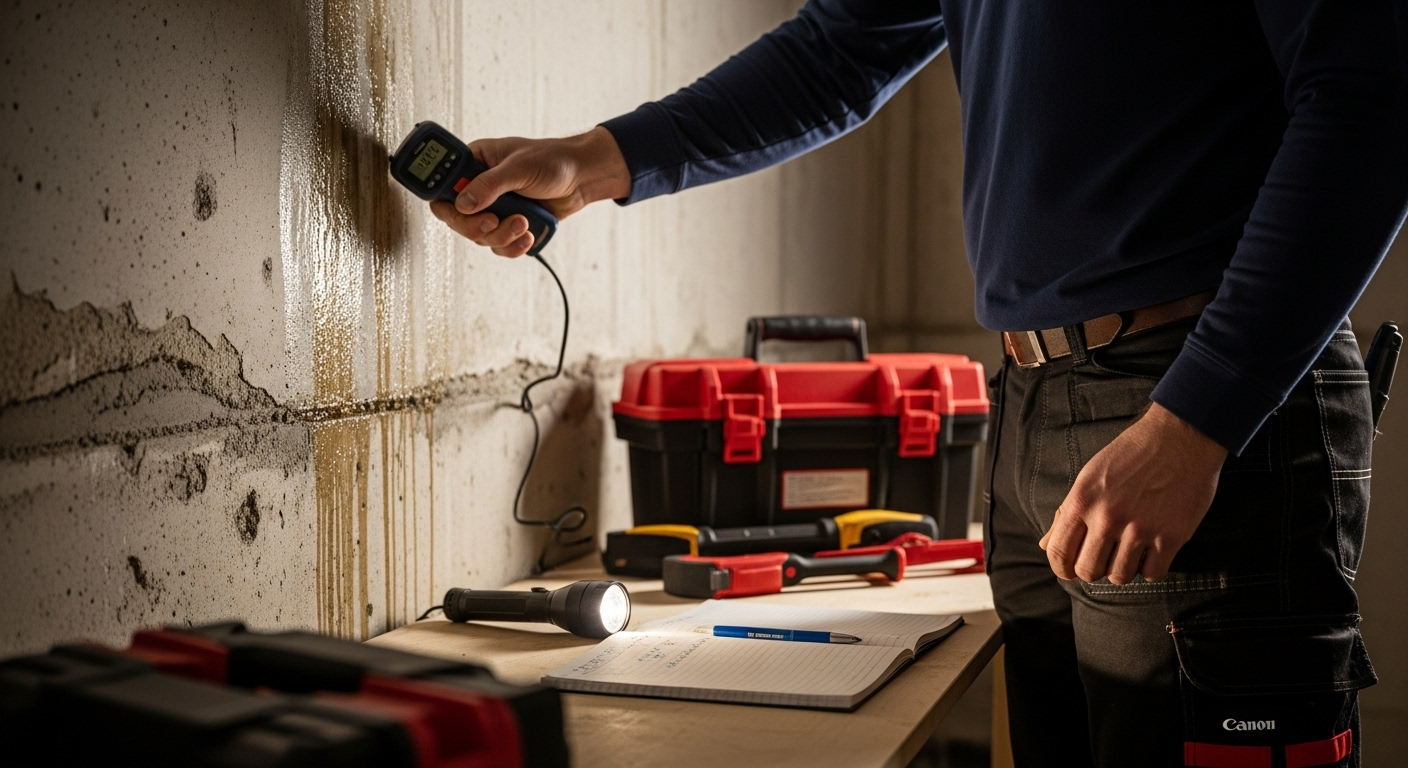10 Things You Should Never Put Down Your Drains
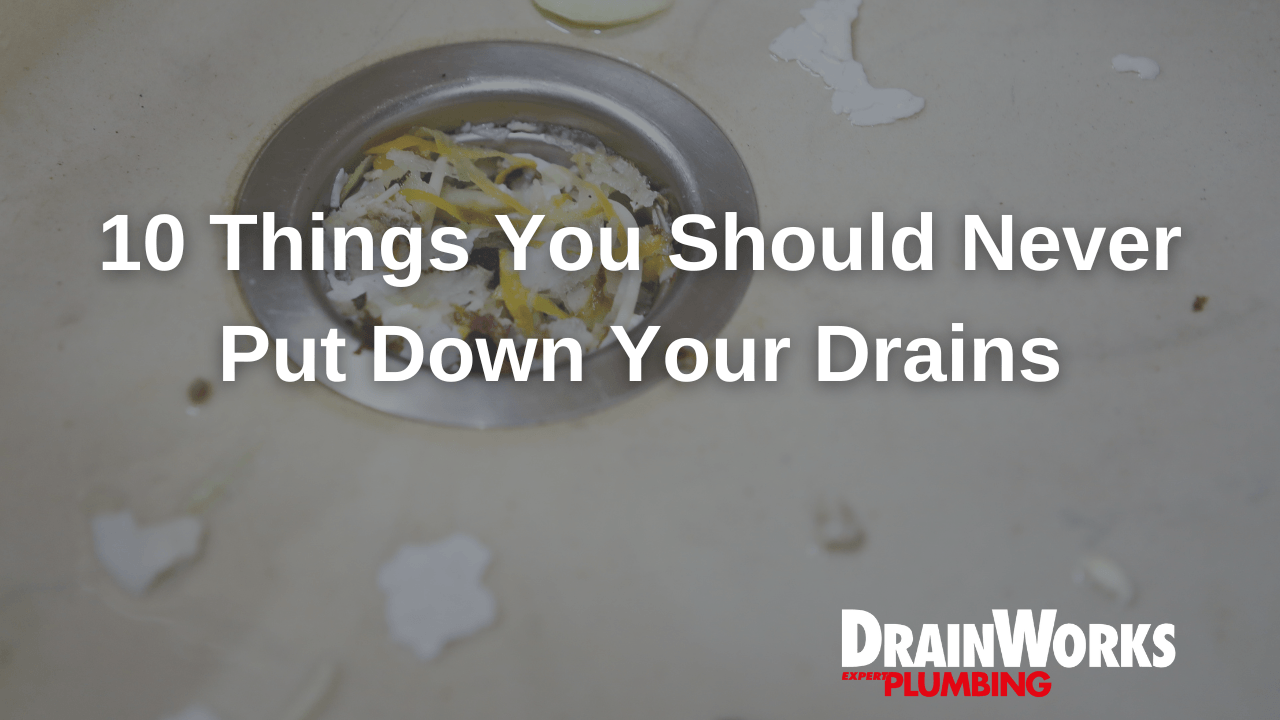
10 Things You Should Never Put Down Your Drains - Are you plagued by frequently blocked drains that constantly require a professional
drain cleaning service to clear?
Maybe the
emergency plumber Toronto locals rely on is a regular visitor to your property? While recurring blockages may be due to factors such as the age of your drainage pipes, or an invasive tree root (which can be easily resolved), in many cases, the problems are due to unsuitable substances entering your drainage network.
To reduce the chances of a clogged drain, Toronto residents need expert plumbing services to clear, make a mental note never to flush the following items down your drain!
1. Grease, Fats and Oils
Unless you want an enormous fat build-up hanging out in your drainpipe, don’t pour any form of grease, including butter, cooking oils, or candle wax, down the sink. Greases, fats and oils, including liquid lard that’s been used for frying will quickly solidify, creating a stubborn blockage that’s difficult to remove. Bacon fat from the pan is one of the most common causes of kitchen sink clogs in Canada and United States.
Oils and fats slow the passage of wastewater down to the main drain. This causes detritus to precipitate out and potentially get stuck in the fat, adding to the blockage.
2. Food Scraps
Flour can form a stiff paste when it comes into contact with water. Uncooked pasta and rice may swell to cause a blockage in the presence of water. Egg shells have sharp points and edges that trap detritus. As well as the potential for blockages, food in the drainage system attracts rodents.
We never recommend putting these items down your kitchen sink because doing so will eventually lead to a drain being backed up.
Food scraps with bones or harder materials may also get stuck in the drain pipe by being lodged across the pipe which will block other items from being washed to the city main drain. Plus bones take a big toll on your garbage disposal unit. We recommend putting food scraps in the
green 'organics' bin provided by the city of Toronto or your local municipality.
We're going to add 1 more 'food related' item in this section: produce stickers and labels.
They may seem small and harmless, but they can initiate a
clogged drain extremely easily.
It's important to teach younger children in your home to not throw produce stickers, plastic bread tie holders, wrappers etc. down the drain as these items will block a drain in no time.
3. Hair Clippings
This is something we see all too often in bathroom sinks. If you want to avoid the cost of plumbing maintenance or drain repair Toronto people need when their drainage system malfunctions, dispose of hair clippings in the trash. Many people who complete DIY haircuts on themselves or their pets may casually flush the clippings away or rinse them down the sink. Hair is a common cause of blockages – dispose of it responsibly.
4. Paper Towels & Toilet Paper
Paper products aren’t soluble and take time to break down. For this reason, they should be disposed of along with other domestic waste, not flushed or washed down the drain.
Another common household item we see in bathroom drains are cotton balls. They may appear soft and fluffy, but when cotton balls get wet, they get much denser and are a common culprit when it comes to your bathroom drainage system. The denser and heavier material catches other pieces of debris and now your cotton ball has created a snowball effect where it's getting bigger and bigger with refuse and won't go down the drainage system smoothly.
The proper way to dispose of them is to throw them in the trash.
Toilet paper is a bit of a tricky one because although they are meant to be flushed down the toilet, adding too much toilet paper will definitely cause a clogged toilet. If you find yourself in a situation where you need to use a lot of toiler paper, we recommend throwing it in the trash bin OR if not possible, perform multiple flushes with smaller amounts to avoid needing a Toronto plumber to fix your toilet.
5. Paint
Paint can coat the inside of your drain pipe, narrowing its diameter so that the risk of blockages increases. Oil-based paint, in particular, can form a viscous, slow-moving blockage that causes detritus and waste to become stuck.
Paint is difficult to remove from a drainpipe completely. In some cases, it’s necessary to call in professionals to install fresh pipework or reline the pipe.
Only dispose of paint in hazardous waste facilities like the Household Hazardous Waste Depot. There are several around Toronto and Ontario.
Some hardware stores have programs to take your unused and opened paint cans to make it even more convenient for homeowners.
6. Engine Oil
Like any other oil, engine oil will hang about in your drainage network for weeks. Its viscous nature means that particles of waste that would otherwise pass into the main drain get embedded in the oil. It’s also a toxic contaminant.
If you’ve changed the oil in your vehicle, ideally, the old oil should be put into the container the new oil came in and taken to a designated hazardous waste facility that will dispose of it properly – auto workshops will frequently do this. We recommend calling up your local mechanic or quick lube shop to see if they'll take it off your hands.
7. Plaster or Cement
Whether the products are in powder form or you have excess product made up that you don’t need, avoid flushing plaster or cement into your drainage network. As you can imagine, both products have the potential to cure quickly, resulting in a durable blockage that could mean your drainage pipes need to be replaced.
8. Coffee Grounds
Coffee grounds aren’t completely soluble. When they enter the drainage system, they frequently settle at the pipe’s bottom. This slows wastewater down, encouraging other solid matter to precipitate out and create a blockage.
9. Kitty Litter Including "Flushable Cat Litter"
Never flush kitty litter down the toilet! Kitty litter isn’t soluble - some types actually clump together into a solid ball when they come into contact with moisture. Even if you manage to flush the litter, it’s likely to linger in your waste pipe, forming a blockage you could well do without.
10. Wet Wipes And “Flushable” Products
Don’t be taken in by the claims that a product is “flushable.” While a flushable item may get past the toilet’s U-bend and into the drainage system, it still has the potential to stick fast in your drainage network, leading to an unwanted blockage. Flushable wipes are especially deceiving for homeowners because they are marketed as safe for your homes plumbing, but are anything but.
Also, be aware that “biodegradable” products may take years to break down – if you’ve flushed something biodegradable into your drainage system, chances are you won’t want to wait that long for it to disappear.
When Necessary, Call the Professionals
If it's too late and you already have a clogged drain you just can't free up
Contact the team at DrainWorks Expert Plumbing for fast, expert service.
We can provide a
drain cleaning service in multiple ways.
Hydro jetting, plumbing inspections, and other
plumbing repairs or upgrades. We can get your home’s drainage system back flowing as it should!
Call us at 416-486-0000 OR Book a licensed Toronto plumber online
Thanks For Reading 10 Things You Should Never Put Down Your Drains
Thanks For Reading 10 Things You Should Never Put Down Your Drains. Make sure to check out our other plumbing blogs below.




